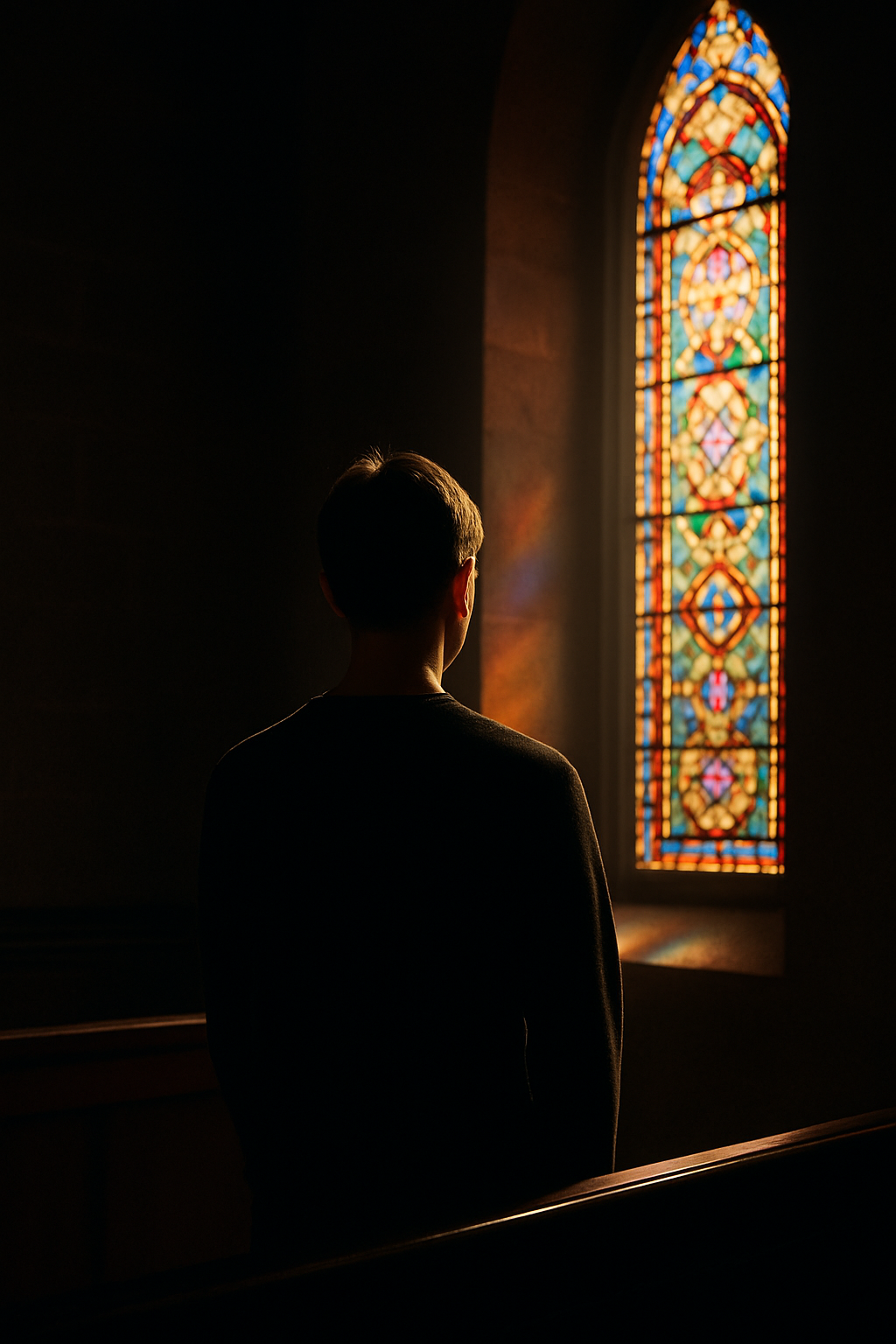
Some people learn early that to be loved, they must perform.
In the church, this performance often wears the costume of holiness.
They become the encourager, the servant, the one who always shows up.
They speak like light but feel nothing inside — terrified that if the brightness fades for even a moment, they’ll be exposed for who they really are: tired, uncertain, and human.
The tragedy is not that they’ve lost faith.
It’s that they’ve lost themselves within it.
The Glow That Blinds
There’s a kind of light that doesn’t illuminate — it blinds.
It’s the light of performance, of religious self-protection, of spiritual image-crafting.
It says: I’m fine.
It preaches: God is good, even while silently questioning whether He hears at all.
This light is not evil on its own — it’s often born from survival.
Many who wear it were once shamed for showing pain, told to “have more faith” when they cried, or punished for questioning authority.
So they learned to glow, not grow.
The Birth of Performance Faith
Faith begins in encounter — an awakening between the soul and its Maker.
But for many, that relationship slowly becomes a stage.
Every word, every prayer, every act of service is filtered through a single anxious question:
Am I enough?
Soon, the focus shifts from God’s heart to the audience’s applause.
The stage lights are warm, but they burn.
And beneath the brightness, the soul begins to dry out.
Paul warned about this in 2 Corinthians 11:14:
“Even Satan disguises himself as an angel of light.”
It’s a haunting truth: not every light is holy.
Some light deceives by appearing pure.
The Religion of Image
Performative Christianity looks healthy from afar.
It measures worth in busy calendars and ministry titles.
It speaks fluent Scripture but forgets how to rest.
And yet, behind the sermons, the posts, the polished testimonies, there is often an ache —
a dull, persistent sense that something has gone missing.
The believer’s heart becomes split: one half knows the truth, the other half sells it.
This is not hypocrisy born of malice; it’s the exhaustion of a heart that’s forgotten grace.
How It Feels to Wear the Mask
Those who live this way often describe it like being haunted by silence.
They pray, but their words echo back empty.
They serve, but it no longer nourishes them.
They smile at church, then cry in the car.
The mask of light becomes heavy — yet they keep it on, believing that taking it off would cost everything.
And in a way, it will.
Because removing the mask means death — not of the body, but of the performance.
The Inner Divide
Psychologically, this kind of double existence creates spiritual dissociation.
Part of the self lives in constant motion and obedience,
while the other hides in the dark corners of shame and unmet needs.
Over time, the performer begins to resent the God they believe demands this false brightness.
But in truth, it is not God demanding it — it’s the illusion of control.
The need to never be weak, never be seen, never be wrong.
“Where envy and self-seeking exist, confusion and every evil thing are there.” — James 3:16
This confusion isn’t random — it’s the result of loving the image more than the intimacy.
The Church That Rewards the Mask
Church culture often applauds performers.
The most “faithful” are those who never fall apart publicly.
The most “anointed” are the ones who shine on cue.
But God’s kingdom is inverted —
the broken are blessed,
the meek are lifted,
and the truth-tellers are often the ones accused of rebellion.
When churches reward appearance over authenticity,
they unknowingly nurture a generation of fractured souls —
people who love God but fear being fully known by Him.
The Unmaking of the Image
Mercy sometimes looks like collapse.
The performer burns out, the mask cracks, the light flickers.
It feels like failure — but it’s deliverance in disguise.
Because grace will not coexist with pretense.
It waits patiently until the image crumbles.
That’s when the voice of love whispers:
“I never asked you to impress Me.
I asked you to walk with Me.”
The True Light
Real light doesn’t blind — it heals.
It reveals the face beneath the mask and calls it beloved.
Jesus didn’t come for the polished; He came for the parched.
He sought the woman at the well, the tax collector, the doubter, the ashamed — the ones who had stopped performing.
The Gospel was never a stage. It was a rescue.
Healing from Performative Faith
If you recognize yourself in these words, know this:
You don’t need to “fix your faith.”
You need to rest in truth.
Start by confessing, not performing.
By praying words that are ugly and honest.
By daring to say, “I don’t feel You, God, but I still choose to speak.”
Healing begins where image ends.
It’s the moment your light stops being a mask and starts being mercy.
Reflection
There’s a holiness in falling apart — a sacred undoing that reveals who we truly are beneath the religious armor.
The light God loves isn’t perfect; it’s surrendered.
It shines not because it never dims,
but because it lets Him relight it again and again.
🕊️ Scripture References
- 2 Corinthians 11:14
- James 3:14–16
- Matthew 6:1–6
- Psalm 51:17
- John 8:32